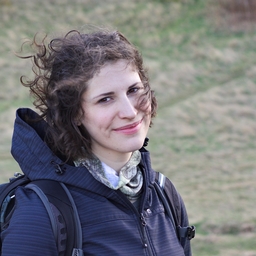
Cathleen O'Grady
Science Writer at Freelance
Correspondent at Science Magazine
Science journo. No longer here. Find me on Signal at cathleen_ogrady.14 or @cathleenogrady.bsky.social
Articles
-
2 weeks ago |
science.org | Cathleen O'Grady
Science funding in the United Kingdom will remain essentially flat over the next few years, according to figures published in a governmental spending review today. In the review—which sets out how money will be allocated to different departments until 2029—Chancellor of the Exchequer Rachel Reeves promises that the Labour government will provide £86 billion for R&D funding over the next 4 years.
-
2 weeks ago |
science.org | Cathleen O'Grady
The science reform movement—which aims to improve the rigor of research—has unwittingly handed the administration of President Donald Trump a way to attack science, critics say. Trump’s executive order calling for “gold standard science”—widely interpreted as an attempt to target findings that are inconsistent with the administration’s political agenda—was a foreseeable outcome of a movement that overstated the problems in science, according to some researchers.
-
3 weeks ago |
science.org | Cathleen O'Grady
More than a decade after psychologists began to seriously wrestle with questions about the rigor and reliability of their work, there are signals that the field is improving. A recent analysis of 240,355 psychology papers reports that “fragile” statistical results—a potential marker of poor research practices or samples that are too small—decreased substantially between 2004 and 2024.
-
1 month ago |
science.org | Cathleen O'Grady
A preprint reporting an “expert consensus” on key questions about teen smartphone use and mental health has come under heavy fire on social media, with critics saying the paper has severe weaknesses and the evidence in the field is too thin to support consensus. “I think it’s a waste of time,” says Pete Etchells, a psychologist at Bath Spa University who studies digital technology.
-
1 month ago |
science.org | Cathleen O'Grady
Last year, Matt Spick began to notice oddly similar papers flooding in for peer review at Scientific Reports, where he is an associate editor. He smelled a rat. The papers all drew on a publicly available U.S. data set: the National Health and Nutrition Examination Survey (NHANES), which through health exams, blood tests, and interviews has collected dietary information and other health-related measurements from more than 130,000 people.
Try JournoFinder For Free
Search and contact over 1M+ journalist profiles, browse 100M+ articles, and unlock powerful PR tools.
Start Your 7-Day Free Trial →Coverage map
X (formerly Twitter)
- Followers
- 3K
- Tweets
- 96
- DMs Open
- Yes